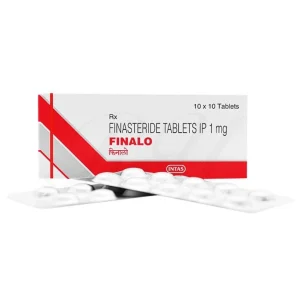Description
Ibrutinib 140 mg Capsules – Targeted Therapy for B-cell Cancers
Ibrutinib 140 mg is a prescription oral cancer medication used in the treatment of several B-cell malignancies such as Chronic Lymphocytic Leukemia (CLL), Mantle Cell Lymphoma (MCL), and Waldenström’s Macroglobulinemia. Ibrutinib is a Bruton’s Tyrosine Kinase (BTK) inhibitor that blocks the signals cancer cells need to multiply and survive.
Key Benefits:
- Disrupts cancer cell growth and survival in B-cell lymphomas
- Oral targeted therapy—no intravenous administration needed
- Prolongs progression-free survival in relapsed/refractory patients
- Approved in multiple countries for CLL, SLL, MCL, and WM
- Can be used alone or in combination with other therapies
How to Use:
Take Ibrutinib 140 mg orally with a full glass of water, once daily or as prescribed by your oncologist. Do not crush or open the capsules. Continue treatment as long as advised by your doctor. Avoid grapefruit or Seville oranges while on therapy.
Precautions:
- Risk of bleeding, infections, and irregular heartbeat – regular monitoring required
- Use with caution in patients with liver impairment or bleeding disorders
- Not recommended during pregnancy or breastfeeding
- May interact with antifungals, antibiotics, and antacids
Storage Instructions:
Store at 15–30°C in a dry, cool place away from direct sunlight. Keep the bottle tightly closed and out of reach of children.
Frequently Asked Questions (FAQs)
1. What is Ibrutinib 140 mg used for?
It is used for treating B-cell blood cancers like Chronic Lymphocytic Leukemia (CLL), Mantle Cell Lymphoma (MCL), and Waldenström’s Macroglobulinemia (WM).
2. How does Ibrutinib work?
Ibrutinib blocks Bruton’s tyrosine kinase (BTK), a protein needed for B-cell cancer survival, thereby stopping the growth and spread of cancerous cells.
3. What are the common side effects?
Common side effects include diarrhea, fatigue, muscle pain, bruising, nausea, and upper respiratory infections. Serious effects include bleeding and heart rhythm problems.
4. Can Ibrutinib be taken with food?
Ibrutinib can be taken with or without food, but avoid grapefruit and Seville oranges, which may interfere with the drug’s metabolism.
5. Is Ibrutinib safe during pregnancy?
No. It may harm an unborn baby. Use effective contraception during and at least 1 month after treatment.
6. How long do I need to take Ibrutinib?
It is usually a long-term therapy continued until disease progression or unacceptable toxicity. Follow your oncologist’s treatment plan.





